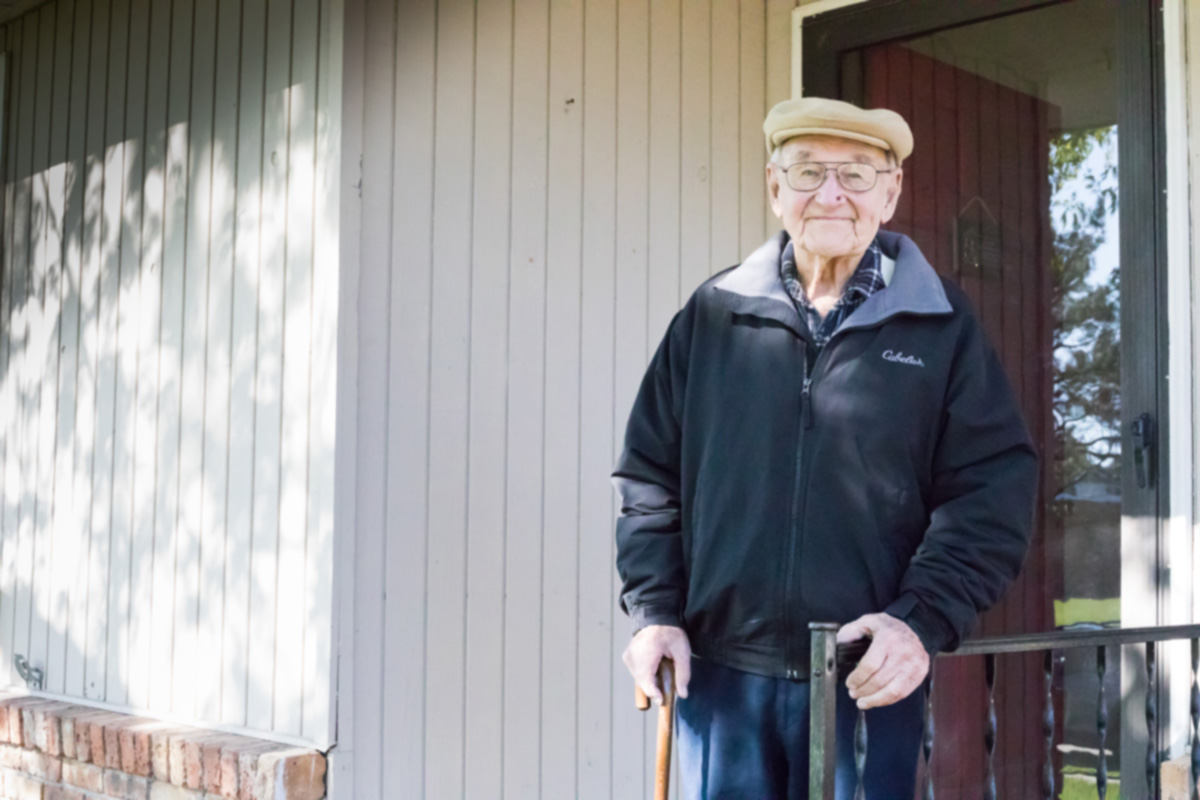It is no surprise that most older adults would prefer to age in their home – the place in which they are most comfortable. In fact, 90 percent of adults over age 65 report that they’d prefer to age in place. Other studies support this notion too. A recent survey of 1,000 North American adults, ages 55-75, found that nearly four out of five (78 percent) respondents wish to remain at home simply because their current home and community is where they are happy and comfortable.
While 54 percent of older adults say they would be heartbroken if they could no longer live at home, they may not have considered that their home will need modifications to make sure it remains the safest and most comfortable place for them to live.
If your parents count themselves among the majority of older adults who want to age in place, they should be aware that aging can put them at a higher risk for falls and accidents around the home. In fact, about 1 in 4 older adults experiences a fall during their lifetime, and an older adult is treated in the ER for a fall every 11 seconds.
Your parents might be at risk for a fall due to a variety of physical, behavioral and environmental factors, such as loss of strength or balance, performing tasks beyond their capability or allowing clutter to build up in the house. You take steps to help your parents reduce their risk of falling – but be prepared for their resistance to your ideas.
Many older adults resist modifying their home to improve safety, and their reasons often include:
- Fierce independence: As people age, they may not want to admit or accept that they need assistance.
- Aesthetic appeal: They may not want home modifications to impact the look and aesthetics of their home.
- Fear of asking for help: It’s common for older adults to fear asking for help because they believe it indicates that they can’t handle living on their own. They may also believe asking for help will lead to an expedited move to a nursing home or assisted living home.
- Emotional connection: There may be an emotional connection to hazardous items like throw rugs.
- Cognitive impairment: Aging adults may not recognize common hazards in the home or may forget to report accidents like falls or a small kitchen fire.
If your parents express these concerns, be sure to validate them. You can acknowledge these objections without giving up your own position that you want to keep them as safe as possible so they can continue living at home.
Use this home safety checklist to help determine if your aging loved one's home is safe from hazards that could jeopardize well-being and independence.
Then take these steps to overcome your parents’ resistance to home modifications that might keep them safer:
- Talk with them to understand their personal goals for their living environment.
- Assess and discuss their current home environment by using a free home safety checklist.
- Collaborate with them to find creative home safety solutions that meet their living environment goals.
- Discuss the importance of fall prevention and risk reduction, as well as why it is crucial to tell a loved one or physician about recent falls.
- Include a third party who specializes in aging in place home modifications to validate the need for home modifications to improve safety. Learn more about and find a certified specialist in your area.
Your parents may be concerned about the costs involved with upgrading or remodeling their home to make it safer. Talk to them about the various ways to fund a home remodel and talk about five simple fixes under $1,000 that can improve their comfort and safety.
If your parents’ goals include aging in place, have a conversation with them about how make that possible by modifying their home to support them better as they grow older. With a few upgrades, they can live at home safely, comfortably and peacefully throughout the coming years.
For additional aging-in-place resources, visit HomeYourOwnWay.com and MakingHomeSaferForSeniors.com.
For more tips for the care and support of someone living with dementia, visit www.helpforalzheimersfamilies.com or www.alz.org.
Compassionate Home Care




